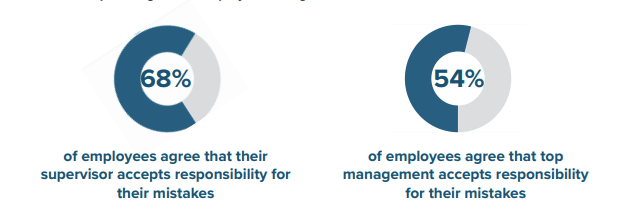Accountability: Accepting and Ensuring Responsibility
ECI recently released a Global Business Ethics Survey® (GBES®) report on accountability. Based on 75,495 employee responses from 42 countries across the globe, this report provides valuable insights on why accountability matters to employees.
What is accountability? Accountability is accepting or ensuring responsibility for decisions or actions, especially when those actions fail to live up to standards or core values.
Our research exploration found that managers play a pivotal role in reinforcing the belief that accountability is present and linking accountability and other facets of an organization’s ethics culture.
3 Things to Keep in Mind:
- Accountability, satisfaction after the reporting of misconduct, and the intent to report again are mutually reinforcing. This means that if you want employees to report again you want them to be satisfied with the overall reporting experience and that those who are satisfied are more likely to report again.

- There is the widespread belief that accountability exists in organizations, but expectations of accountability exceed demonstrations of it—especially with respect to leaders.

- Accountability is connected with an increased belief that employees behave fairly toward one another. Employees are far more likely to believe that people in their organization are fair and just if they strongly agree that their leaders are held accountable, admit their mistakes, and/or accept responsibility for mistakes
Our findings underscore the importance of accountability and challenges that remain. Fortunately, leaders have the power to drive positive change. To access this report which is available to the public, click here. For all things GBES, click here.

